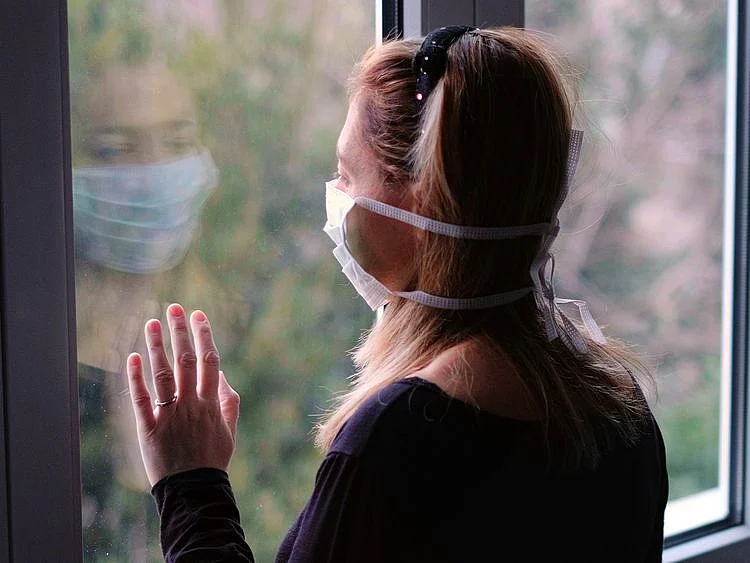Coronavirus: Quarantine violators in UAE face up to five years in jail
Fines of Dh50,000-Dh100,000 can also be levied against the person

Dubai: Those diagnosed with COVID-19, who fail to comply with quarantine measures in the UAE, will face imprisonment up to five years, judicial officials said.
As coronavirus spreads in the world and fears of people failing to follow the 14-day quarantine grows, UAE’s Attorney General Hamad Saif Al Shamsi warned the public against violating the country’s precautionary measures.
He said breaking the 14-day home quarantine and coming into contact with others is considered a violation under the law as it puts the health and safety of society members at risk.
According to Federal Law No. 14 of 2014 to combat communicable diseases, infected people who intentionally spread the virus are subject to penalties that include fines and jail terms, depending on the type of violations.
“The law prohibits those who have a communicable disease from carrying out any intentional behaviour that results in spreading the infection. The penalty for this violation can go up to five years in jail and/or fine between Dh50,000 t0 Dh100,000,” said lawyer Ghassan El Daye, partner and head of litigation, Middle East, for UK-based law firm Charles Russell Speechlys.
He said the legislation ensured the protection of public health by promoting the country’s efforts to implement a strategy aimed at combating communicable diseases.
“If the offence is repeated, judges are allowed to double the violator’s prison term.”
Moreover, people can be jailed for up to three years and/or fine between Dh10,000 to Dh50,000 if those who know they have been infected with the disease leave the health facility or travel out or into the country without a pre-approval from concerned authorities.
“According to the law, people arriving into the country who know they have been infected, should notify authorities on arrival or they can be prosecuted,” Al Daye added.
The law also makes it obligatory for residents to report any suspected cases or deaths resulting from a communicable disease.
Meanwhile, Emirati lawyer Ali Musabah, owner of Ali Musabah Advocate and Legal Consultants, told Gulf News that if the infected person is found to spread the disease intentionally, has infected others and caused their deaths, then he or she can be punished according to the communicable diseases law as well as the country’s penal code.
“If an infected person intends to spread the disease to others and they die, then he will be charged with causing wrongful deaths to others, according to the penal code,” Musabah said.
He said the penalty is up to three years in jail for causing wrongful death.
“If more than three people have died as a result of the violator’s offence, the prison term will increase to five years,” he added.
Musabah said that there is an ethical and human responsibility on suspected coronavirus cases to stay in home quarantine and not endanger the lives of others.
“People should act ethically and responsibly by following necessary procedures announced by the concerned authorities,” said Musabah.
Penalties at a glance
-Any person who knows that he is infected by a communicable disease and deliberately transmits the disease to others will be jailed up to five years and/or fined a sum of Dh50,000 to Dh100,000.
Jail up to three years and/or fine between Dh10,000 and Dh50,000 will be imposed on:
Those who know they have been infected and leave the health facility or travel out or into the country without a prior approval from concerned authorities.
Those who arrive in the country and know they have been infected and not notify authorities on arrival.
Those who know they have been infected and don’t follow precautionary procedures stipulated by concerned authorities.
Sign up for the Daily Briefing
Get the latest news and updates straight to your inbox
Network Links
GN StoreDownload our app
© Al Nisr Publishing LLC 2026. All rights reserved.